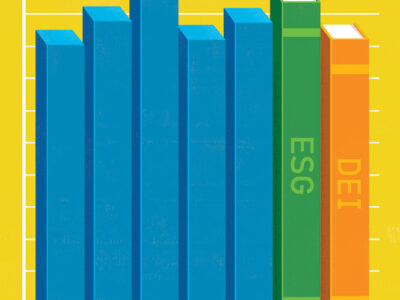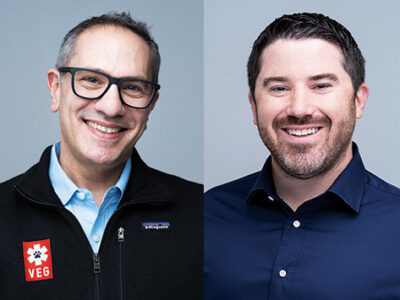
You’re walking to work one morning when a flurry of movement catches your eye: a small child is splashing in the shallow pond in the park by your house. But something looks a bit off—he’s not playing.
He’s drowning.
You glance around. Where are his parents? But aside from you, the park is empty.
Should you help this child? Is he your responsibility? Or should you hurry off to work, reluctant to get your dress shoes dirty?
So it is with helping those in extreme poverty, says Peter Singer, the utilitarian philosopher whose 1975 work Animal Liberation catapulted him into a 40-year career in the public spotlight. Since then he has written about our relationships with food, animals, and fellow human beings, both in philosophical journals and books meant for the general public.
Singer was on campus in October to speak about “effective altruism”—a movement emphasizing cost-effective philanthropy—and to kick-start two new Penn organizations: Giving What We Can and One For The World.
Giving What We Can, a local chapter of an international organization that has branches in 25 other US cities, aspires to build a Penn community committed to reducing global poverty effectively.
One for the World, started last year by Wharton MBA students Kate Epstein WG’14 and Josh McCann WG’14, aims to educate Wharton students and alumni about high-impact giving. Members pledge to donate 1 percent of their future income to the world’s most effective charities.
“For one, it’s practical—we’ll hardly miss it,” says group co-president Anita Hossain WG’15 “Ninety-nine percent of our starting salary is still a lot of money, and it’s a lot more than we’re making right now.”
“Second, it’s meaningful,” she adds. “Research has shown that 1 percent of the developed world’s income could eliminate extreme poverty forever.”
One for the World currently has about 45 pledges. Not all of them have begun giving, as some are still students, but “the commitments are there,” according to McCann. “We have an active student ambassador program, continuing outreach, and education events like the Professor Singer speech to try and increase participation.”
As the headliner for the groups’ debut, Singer argued that most of us, with what could barely qualify as a personal inconvenience, can make a difference for people in need.
“Here’s a minor premise: Extreme poverty is bad,” Singer began. More than 1 billion people don’t have enough income to meet their basic needs, subsisting on less than $1.75 a day. They lack access to education, safe drinking water, and basic healthcare services, and they die from diseases that scarcely exist in developed countries. “Clearly, extreme poverty has a huge negative impact on the lives of those who experience it.”
Meanwhile, he went on, citizens in developed countries often claim they aren’t wealthy enough with one breath, only to buy a morning coffee—often costing $1.75 or more—with the next.
Therefore we clearly have more than enough resources to do something, Singer proposed. “I’m not talking about eliminating extreme poverty, none of us can do that,” he added. “But … just as in the case of the drowning child, we can make a difference to one child. So at least that.”
Only that leads to the tricky part. Making a difference is a complex task. There are thousands of charities out there. Some are liable to spend your dollars on glossy brochures, rather than directing them to people in need. Worse still, global poverty is such an immense problem that your own contribution can seem futile.
This is where effective altruism comes in.
“We’ve had aid and charity for a long time,” Singer said, “but we haven’t until relatively recently really tried to be rigorous about working out what works and what doesn’t work, and what is the most cost-effective way of working to reduce poverty and improve global health.”
Organizations like GiveWell and Giving What We Can are at the forefront of this new empirical approach, which aims to maximize the number of lives saved per dollar spent. Giving What We Can assesses charities on the basis of whether they deliver measurable increases in human happiness and people’s control over their own lives. For example, when evaluating health charities, it generates a ratio for “quality-adjusted life years”—the number of extra years a person can live at full health—to dollar donated.
One for the World has partnered with Penn’s Center for High Impact Philanthropy, as well as GiveWell and Charity Navigator, another third-party nonprofit evaluator, to support data-backed organizations that focus on “reducing preventable deaths among people living on less than $1.25 per day.”
One method that has not been effective, Singer said, is relying on our government to do this humanitarian work. A mere 0.23% of the United States’ gross national income goes towards aiding developing countries, falling far short of the UN’s goal of 0.7%.
“We believe all members of our Wharton community are in extremely fortunate positions,” said McCann. “Creating a culture of considered, effective, and consistent giving among a group of people who will hold leadership positions across society is exciting and valuable.
“We’d like Wharton to be at the vanguard of a movement to have future leaders accept increased responsibility for resolving the most galling and needless suffering in
the world.”




